We must blame Apple for China
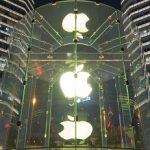
Charles Duhigg and David Barboza’s recent New York Times article, "iEconomy: Human Costs Are Built Into an iPad", has created quite a firestorm. The article is a blistering expose of Apple and its Chinese manufacturing partners. For those that haven’t read it, please do. This is important, necessary journalism.
Apple apologists are quick to defend the company's behavior as "Me too". Critics call for boycotting Apple products. Holding Apple accountable is the right thing to do for all tech companies. We must see the apologist arguments for what they are -- fallacies that disempower us from action -- and hold up Apple as standard-bearer reformer for all Western technology manufacturing in China.
Apple, the enterprise, and the marginalization of the cultists
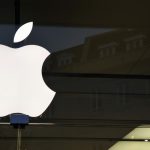
For a company left for dead a little over a decade ago, Apple's return to relevancy and in some cases supremacy is stunning. Love or hate the company, few others have accomplished a similar feat. Now one of the last dominoes left to fall -- the enterprise sector -- is set to embrace the platform.
Forrester Research finds that one out of every five IT employees use one or more Apple products at work. This is not completely by their own request: half of all corporations of 1,000 employees or more now issue Macs to at least some of their work force, with an average of a 52 percent increase in deployments slated for 2012.
Suddenly 37M iPhones isn't so many
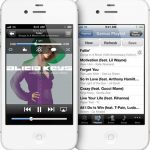
My reaction mirrored many others this week. Apple's big iPhone holiday quarter seemed simply unbelievable -- 37 million, up 128 percent year over year. But Samsung was close. Real close: 36.5 million smartphones, according to Strategy Analytics. Together, the two companies accounted for 47 percent of fourth-quarter smartphone shipments.
The horse race between the companies sours Apple apologist arguments about iPhone vs Android. Staunch iPhone defenders blow off Android competition as one against many. But on the one-to-one comparison, Apple isn't so high and mighty. Samsung is keeping pace just fine. Apple was market leader for the quarter -- 23.9 percent share to the South Korean company's 23.5 percent. But Samsung took the year -- 19.9 percent share to its American rival's 19 percent. Both companies had exceptionally good fourth quarters.
iPad share plunges as Android tablets make dramatic gains
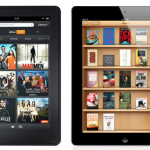
Do I have your attention yet? Apple fans needn't worry, iPad has considerable lead over Android tablets. iPad global market share, as measured by mobile operating system, fell to 57.6 percent in fourth quarter from 68.2 percent a year earlier, according to Strategy Analytics. Meanwhile, Android tablets rose to 39.1 percent from 29 percent. Something else: Windows climbed from zero to 1.5 percent, and that's without tablet-optimized Windows 8.
Despite popular convention that people only want iPad, clearly somebody is buying Android. Strategy Analytics doesn't break down the numbers by vendor, but there's reason to ask about one. Amazon. For months there has been oft-asked question: Would $199 Kindle Fire cut into iPad sales? Last month, Amazon said that it sold over 4 million Kindles in December, but wouldn't specify how many were tablets. "Apple shrugged off the much-hyped threat from entry-level Android models this quarter", Peter King, Strategy Analytics director, says. Perhaps that's answer enough.
AT&T and Verizon account for nearly one-third of iPhone sales

This morning, before the opening bell, AT&T announced calendar fourth-quarter earnings and record iPhone sales -- 7.6 million. Combined with Verizon's number that works out to 32 percent of iPhones sold during the quarter. Sprint will announce earnings results on February 2, conceivably pushing the number close to 40 percent. Apple CEO Tim Cook has called China Apple's second-most important market. Want to guess which is first?
For AT&T, iPhone was huge during fourth quarter. The carrier sold 9.4 million smartphones, and 80.5 percent of them were iPhones. The number was smaller, but still substantial, for Verizon: 54.4 percent. While Android sales paled by comparison, AT&T doubled them year over year -- not surprising with Samsung's aggressive marketing campaign for Galaxy S II and mid-quarter's introduction of LTE models HTC Vivid and Galaxy S II Skyrocket.
iPhone generates more revenue than all Microsoft
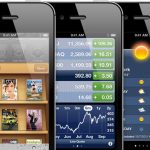
In case you missed it, and I certainly would have if not for someone asking a question, Apple's fiscal 2012 first quarter earnings report has a jaw dropper. iPhone generated $24.42 billion revenue. During the same quarter, all of Microsoft: $20.89 billion. More broadly, Apple revenue ($46.33 billion) was more than twice Microsoft's, and net income nearly was ($13.06 billion versus $6.62 billion, respectively). But it's that iPhone figure that really stands out. One product's revenues against an entire company's. Microsoft's margins are better, but who wouldn't want more money in the bank?
Nearly five years ago, Microsoft CEO Steve Ballmer dismissed iPhone, in a USA Today interview: "There's no chance that the iPhone is going to get any significant market share. No chance. It's a $500 subsidized item. They may make a lot of money. But if you actually take a look at the 1.3 billion phones that get sold, I'd prefer to have our software in 60 percent or 70 percent or 80 percent of them, than I would to have 2 percent or 3 percent, which is what Apple might get". How's that for the mother of wrong predictions?
Apple Q1 2012 by the numbers: $13B profit, 37M iPhones sold

Today, after the closing bell, Apple answered the question analysts have asked for weeks: How many iPhones sold during the holiday quarter? The answer: A colossal number -- 37.04 million.
Apple also shipped 5.2 million Macs and 15.43 million iPads during fiscal 2012 first quarter. Analyst consensus was around 5 million and 14 million, respectively, and 32.5 million iPhones. During today's earnings conference call, Apple CFO Peter Oppenheimer revealed 315 million cumulative iOS device sales. Apple's App Store has 550,000 applications -- 150,000 for iPad. Developers will have earned $4 billion cumulatively by the end of the month, he said.
'This is our generation's Woodstock'

Samsung's newest "The Next Big Thing is Already Here" TV commercial is the riskiest, but by far the snarkiest for anyone closely following the marketing campaign. The jokes are all inside and require some familiarity with previous installments. The risk: Everyone else won't get it. The snark: The iPhone hipster putdowns are mean -- really mean.
During the very first commercial, one Apple hipster waiting in line for iPhone could never get a Samsung because he's "creative". The guy next to him snipes: "Dude, you're a barista". Both men are back in the new commercial, with the barista serving coffee to the snarky companion -- who is carrying Galaxy S II! He's done with the iPhone hipset and makes it known: "It's nice latte art, my man. I see you're still creative". He's with a woman who had the same Samsung smartphone during the first commercial in the series. The Barista: "You two look happy, with your phone".
Don't believe me about the iTunes hack? Just check Twitter

In my most recent story about Apple's hacking problems within iTunes, I was not surprised to see the same criticisms as eight months ago: there's no evidence of it, it's all the users' fault for their crappy passwords, it's a small problem.
Okay, I'll give you the possibility that this could be partially the user's fault in some way. Like saying the guy run down by a speeding vehicle shouldn't have been driving during rush hour. That does not answer how these hackers are getting in -- which from BetaNews' research on this, is mainly an in-app purchase mechanism issue -- nor the true scope of this problem.
Apple's iBooks Author EULA is more and less evil than you think
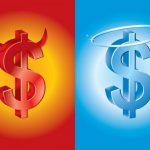
There's a strange concept in marketing that no publicity is really bad. If people talk about you, it broadly raises brand awareness. People eventually forget the bad news but not the brand. Who remembers last year's furor over Apple's onerous publisher subscription terms? That's the eventual outcome from Apple's iBooks Author end-user license agreement, which has shocked many. Simply stated: If you publish ebooks using iBooks Author, no other publisher but Apple can profit. Distribution anywhere else must be for free. The Internet is outraged, even Apple apologists.
For all the negative outpouring -- and there is plenty -- Apple's EULA isn't as outrageous as critics claim -- it's more and less. The licensing agreement enforces Apple proprietary e-publishing file formats. On the less side, Apple's approach isn't far removed from what print publishers do today, and US copyright law likely supersedes Apple's EULA (but not necessarily any separate agreement).
'We just got Samsunged'

Since buying Galaxy Nexus last month, I haven't paid as much attention to Samsung's stunningly clever "The Next Big Thing is Already Here" advertising campaign that slaps around the iPhone hipster set. There's a new TV commercial that begins with a group of iPhone want-to-haves camped out, literally, by an Apple Store.
"Ah that looks like last year's phone" is the killer line, says a guy rising from his sleeping bag to look at an unboxing video of, presumably, iPhone 4S. Samsung snark already has soured perceptions of iPhone and boosted those of Samsung brands, according to YouGov BrandIndex. The attack ads, which never specifically mention iPhone, marks one of the most iconic marketing campaigns since Apple's "Get a Mac".
Mr. University President, please don't adopt Apple's iBooks 2 platform

I'm a second year doctoral student, and I've got some concern about something I heard today that I want to share with any forward-thinking university president, but also with you.
Many schools will be looking at a new e-textbook platform from Apple that will have long-lasting impact on curriculum, students, teaching and cost of education.
Quick Look: iBooks Author

Apple’s iPad has fairly quickly become a great tool for the workplace and in education and the company’s latest bid to revolutionize the market is with ebooks. Ebooks themselves are nothing new, but the existence of touchscreen devices such as the iPad means that the opportunities available to readers through interactive multimedia book are now greater than ever. iBooks Author is a free Mac app that can be used by anyone to create iPad friendly ebooks that can include a variety of widgets such as photo galleries, videos, KeyNote presentations, 3D objects and more.
This is more than just an ebook creation tool for Mac, it is a complete solution that enables you to work through the entire process from initial concept to design and layout before ultimately publishing and making available online. To help get you started, there are a number of different templates to choose from and then it is just a matter of dropping material in place and performing any customizations you want.
Apple's iTunes education gamble is about building loyal consumers early

Two months ago, I argued here on BetaNews that despite the ever-increasing chorus of negativity surrounding Apple, its best days are ahead. One of my reasons for my belief is the young consumer, where the Cupertino company is building a considerable amount of brand equity.
Today's education-centric announcements only strengthen that argument. While there wasn't much pomp or circumstance, the significance is not the immediate announcements but what they mean for the future.
Apple reveals education trifecta: iBooks 2, iBooks Author, and iTunes U
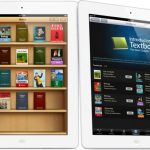
At a private event at the Guggenheim Museum in New York City on Thursday, Apple unveiled its multi-pronged approach for cracking the higher education market with iBooks 2, iBooks Author, and iTunes U. The result is an environment for creating, distributing, and consuming learning materials that is entirely contained within the Apple product ecosystem.
There were three main parts to Apple's education announcement on Thursday:
© 1998-2025 BetaNews, Inc. All Rights Reserved. Privacy Policy - Cookie Policy.